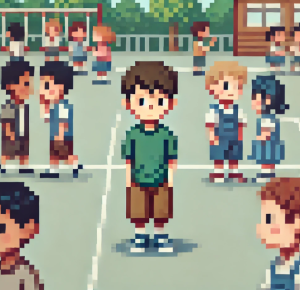
Sleep Matters: What New Research Reveals About Autism and Student Mental Health
Imagine trying to learn, concentrate, or even behave when you’re running on fumes. That’s the reality for many autistic children who struggle with chronic sleep problems, often leading to a cascade of emotional, behavioral, and academic challenges. Now, new research sheds light on just how deeply sleep impacts autistic students—and why this should be on the radar of every parent and mental health professional working with schools.
This latest study dives into the intricate connections between sleep difficulties, aggressive behaviors, and other mental health conditions in autistic children. Using an advanced statistical method known as network analysis, researchers have mapped out how various behavioral, mental, and health conditions interact, with sleep emerging as a critical piece of the puzzle.
Sleep: The Hidden Force Driving Mental Health
Let’s start with the basics: up to 80% of autistic children experience significant sleep difficulties. These range from restless nights and frequent waking to struggles with falling asleep. If you think about it, sleep is like the foundation of a house. When it’s shaky, everything built on top of it—like mood, behavior, and the ability to focus—becomes unsteady, too. This study found that poor sleep doesn’t just make kids groggy; it connects directly to increased aggression, anxiety, and social difficulties.
In younger children, sleep problems were found to be closely linked to aggressive behavior, night waking, and even somatic complaints like stomach aches and headaches. These issues were particularly prominent in children aged 2 to 5. For older children, the connections between poor sleep and aggressive behavior, anxiety, and social problems became even stronger.
Imagine a 10-year-old who’s been up multiple times a night. The next day, they might be irritable, have trouble following directions, or lash out at peers. This cycle can make the child appear defiant or uncooperative, but the root cause could be as simple as a lack of restful sleep. For parents and educators, understanding that a student’s behavior may stem from poor sleep is crucial. Addressing the sleep problem could unlock improvements in many other areas, from anxiety to social interactions.
Aggressive Behaviors: A Red Flag for Mental Health
Aggressive behavior was another key player in this research. According to the findings, aggression isn’t just a standalone issue—it’s often a signal of underlying mental health concerns, particularly in autistic children. These behaviors were seen across all age groups, and they frequently acted as “bridge” symptoms that connected to other mental health problems.
Let’s put this into context with a real-world scenario: You’re a school counselor, and an autistic student in your care has started showing signs of aggressive outbursts in class. Before jumping to conclusions about discipline, this study suggests that it’s worth exploring whether the child is experiencing other struggles—perhaps anxiety or sleep disturbances—that could be contributing to the behavior. By addressing the root cause, such as improving sleep or managing anxiety, you might see a ripple effect that reduces aggression and improves the child’s overall well-being.
What This Means for Schools and Parents
For school mental health professionals, this research points to the importance of looking at student health holistically. If a child is struggling with aggression, mood swings, or social problems, sleep should be part of the conversation. Interventions aimed at improving sleep could lead to improvements in other mental health areas, making sleep a “transdiagnostic” target—a fancy term for an issue that, when addressed, can improve a wide range of related problems.
Parents also play a crucial role in this. If your child struggles with sleep, it’s worth seeking help early. Addressing sleep problems in young children could prevent more serious mental health issues from developing later on. The good news is that sleep interventions, such as establishing consistent routines or using behavioral therapies, have shown promising results in reducing not just sleep problems but also anxiety and aggression.
Building Bridges: The Power of Early Intervention
One of the most striking findings of this study is the idea of “bridge symptoms.” These are symptoms like poor sleep or aggression that connect various other conditions, acting almost like a switchboard that links anxiety, depression, and behavioral difficulties. In younger children, somatic complaints—those physical symptoms that don’t seem to have a medical cause—were found to be another bridge symptom. These might manifest as tummy aches or headaches, which are common complaints among children but often dismissed as unimportant.
However, this study shows that these somatic symptoms are tightly linked to mental health issues like anxiety and poor sleep. So, if a child frequently complains about physical discomfort, it could be a sign that something deeper is going on. For both parents and mental health professionals, this highlights the importance of not overlooking these complaints. They could be the key to unlocking a broader understanding of the child’s mental health.
The Real-World Impact: A Case Study
Consider Jessica, a 6-year-old autistic girl who frequently has tantrums at school. She struggles to make friends and often seems anxious. Her teachers are concerned about her disruptive behavior, and her parents are at their wit’s end. But here’s the missing piece: Jessica has trouble sleeping. She’s up at night, waking frequently, and unable to get restful sleep.
Based on the findings from this study, we now know that Jessica’s sleep problems are likely linked to her aggression and anxiety. By addressing her sleep issues—perhaps with a consistent bedtime routine or behavioral interventions—her aggression might decrease, and she may become less anxious. This, in turn, could improve her social interactions and her ability to focus in class. This kind of holistic, interconnected approach to mental health is what this new research encourages.
Takeaways for Mental Health Professionals and Parents
The key takeaway from this research is that sleep isn’t just an “extra” concern in autistic children—it’s central to their mental health. For school mental health professionals, this means that helping students improve their sleep can have far-reaching effects. It can reduce aggression, lower anxiety, and even improve social interactions and academic performance.
For parents, it’s a reminder to pay attention to your child’s sleep patterns. If they’re struggling with sleep, it’s worth seeking support. A good night’s sleep might be the best medicine for improving their overall well-being.
Thought-Provoking Questions for You
- Have you noticed how sleep affects your child’s behavior or mental health? What steps have you taken to improve it?
- How can schools better support students with sleep difficulties to improve their mental health and academic outcomes?
Unlock Exclusive Educational Insights!
For just $50 a year, immerse yourself in the leading edge of school psychology. This Week in School Psychology brings you closer to the latest developments and applications in mental health education. Your subscription not only enlightens you but supports a wider movement towards informed, impactful education. Sign up today and gain access to a world of exclusive content and community!



